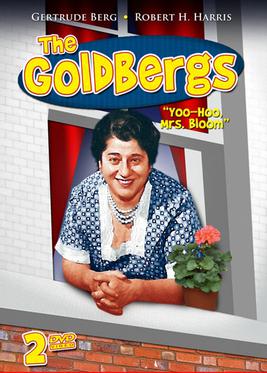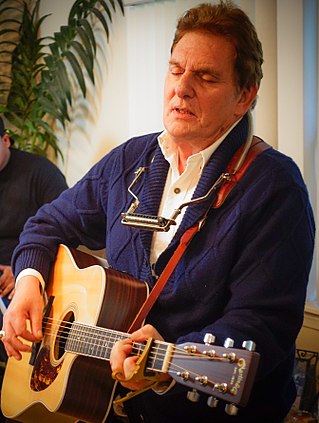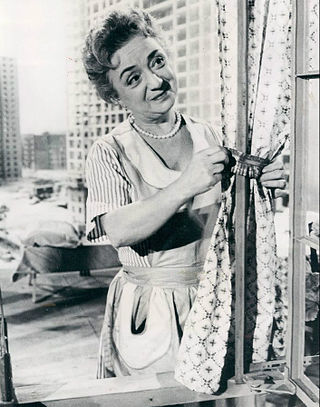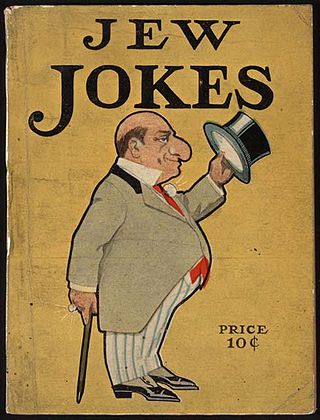
Mary Doria Russell is an American novelist.

The Goldbergs is a comedy-drama broadcast from 1929 to 1946 on American radio, and from 1949 to 1956 on American television. It was adapted into a 1948 play, Me and Molly; a 1950 film The Goldbergs, and a 1973 Broadway musical, Molly. It also briefly spun off a comic strip from June 8, 1944, to December 21, 1945, with art by Irwin Hasen, a comic book artist who worked on various DC comics titles and would later do the Dondi comic strip.

Ida Kamińska was a Polish actress and director. Known mainly for her work in the theatre, she was the daughter of Avrom Yitshok Kaminski and Ester Rachel Kamińska, known as the Mother of the Jewish Stage. The Jewish Theatre in Warsaw, Poland is named in their honor. In her long career Kamińska produced more than 70 plays, and performed in more than 150 productions. She also wrote two plays of her own and translated many works in Yiddish. World War II disrupted her career, and she later immigrated to the United States where she continued to act. In 1967, she directed herself in the lead role of Mother Courage and Her Children on Broadway. In 1973, she released her autobiography, titled My Life, My Theater.

Margaret Forster was an English novelist, biographer, memoirist, historian and critic, best known for the 1965 novel Georgy Girl, made into a successful film of the same name, which inspired a hit song by The Seekers. Other successes were a 2003 novel, Diary of an Ordinary Woman, biographies of Daphne du Maurier and Elizabeth Barrett Browning, and her memoirs Hidden Lives and Precious Lives.

Jules Ralph Feiffer is an American cartoonist and author, who was considered the most widely read satirist in the country. He won the Pulitzer Prize in 1986 as the United States's leading editorial cartoonist, and in 2004 he was inducted into the Comic Book Hall of Fame. He wrote the animated short Munro, which won an Academy Award for Best Animated Short Film in 1961. The Library of Congress has recognized his "remarkable legacy", from 1946 to the present, as a cartoonist, playwright, screenwriter, adult and children's book author, illustrator, and art instructor.

Gertrude Berg was an American actress, screenwriter, and producer. A pioneer of classic radio, she was one of the first women to create, write, produce, and star in a long-running hit when she premiered her serial comedy-drama The Rise of the Goldbergs (1929), later known as The Goldbergs. Her career achievements included winning a Tony Award and an Emmy Award, both for Best Lead Actress.

Philip Gary "Flip" Sloan, known professionally as P. F. Sloan, was an American singer and songwriter. During the mid-1960s, he wrote, performed, and produced many Billboard Top 20 hits for artists such as Barry McGuire, the Searchers, Jan and Dean, Herman's Hermits, Johnny Rivers, the Grass Roots, the Turtles and the Mamas and the Papas.

Albert Cohen was a Greek-born Romaniote Jewish Swiss novelist who wrote in French. He worked as a civil servant for various international organizations, such as the International Labour Organization. He became a Swiss citizen in 1919.

Molly Picon was an American actress of stage, screen, radio and television, as well as a lyricist and dramatic storyteller.

The Second Avenue Deli is a certified-kosher Jewish delicatessen in Manhattan, New York City. In December 2007, it relocated to 162 East 33rd Street in Murray Hill. In August 2011, it opened a second branch at 1442 First Avenue on the Upper East Side. In November 2017, it opened a cocktail lounge called 2nd Floor above its Upper East Side branch.
Roger Price was an American humorist, author and publisher, who created Droodles in the 1950s, followed by his collaborations with Leonard B. Stern on the Mad Libs series. Price and Stern became partners with Larry Sloan in the publishing firm Price Stern Sloan.
Something Else Press was founded by Dick Higgins in 1963. It published many important Intermedia texts and artworks by such Fluxus artists as Higgins, Ray Johnson, Alison Knowles, Allan Kaprow, George Brecht, Daniel Spoerri, Robert Filliou, Al Hansen, John Cage, Emmett Williams and by such important modernist figures as Gertrude Stein, Henry Cowell, and Bern Porter.
Price Stern Sloan or PSS! was a publisher that was founded in Los Angeles in the early 1960s to publish the Mad Libs that Roger Price and Leonard Stern had concocted during their stint as writers for Tonight Starring Steve Allen and also the Droodles. Along with their partner Larry Sloan, they expanded the company into children's books, novelty formats, and humor. Some of the books they published include movie tie-ins for films such as Happy Feet, Wallace and Gromit, Catwoman, and Elf, How to Be a Jewish Mother (1964), and other properties such as Serendipity, Mr. Men and Little Miss and Wee Sing. Today, PSS! still publishes approximately ten Mad Libs books a year. Mr. Stern and Mr. Sloan went on to found Tallfellow Press in Los Angeles.
Dan Greenburg is an American writer, humorist, and journalist. His 73 books have been published in 20 languages in 24 countries.
Carlin Glynn is an American singer and retired actress. She is the mother of actress Mary Stuart Masterson.

Stereotypes of Jews are generalized representations of Jews, often caricatured and of a prejudiced and antisemitic nature.
American-Jewish comedy is, in part, a continuation of the traditional role of humor in Jewish culture among historical and contemporary American performers. It has appealed to both Jewish and wider mainstream audiences. At various times in American history, the field of comedy has been dominated by Jewish comedians.
Lloyd Lawrence "Larry" Sloan was an American publisher of Mad Libs and co-founder of the Los Angeles publishing company, Price Stern Sloan, which opened in the early 1960s.

The Yiddish Theatre District, also called the Jewish Rialto and the Yiddish Realto, was the center of New York City's Yiddish theatre scene in the early 20th century. It was located primarily on Second Avenue, though it extended to Avenue B, between Houston Street and East 14th Street in the East Village in Manhattan. The District hosted performances in Yiddish of Jewish, Shakespearean, classic, and original plays, comedies, operettas, and dramas, as well as vaudeville, burlesque, and musical shows.
Rose Leiman Goldemberg is an American playwright, screenwriter, poet, and author of fiction and non-fiction books and stories.











